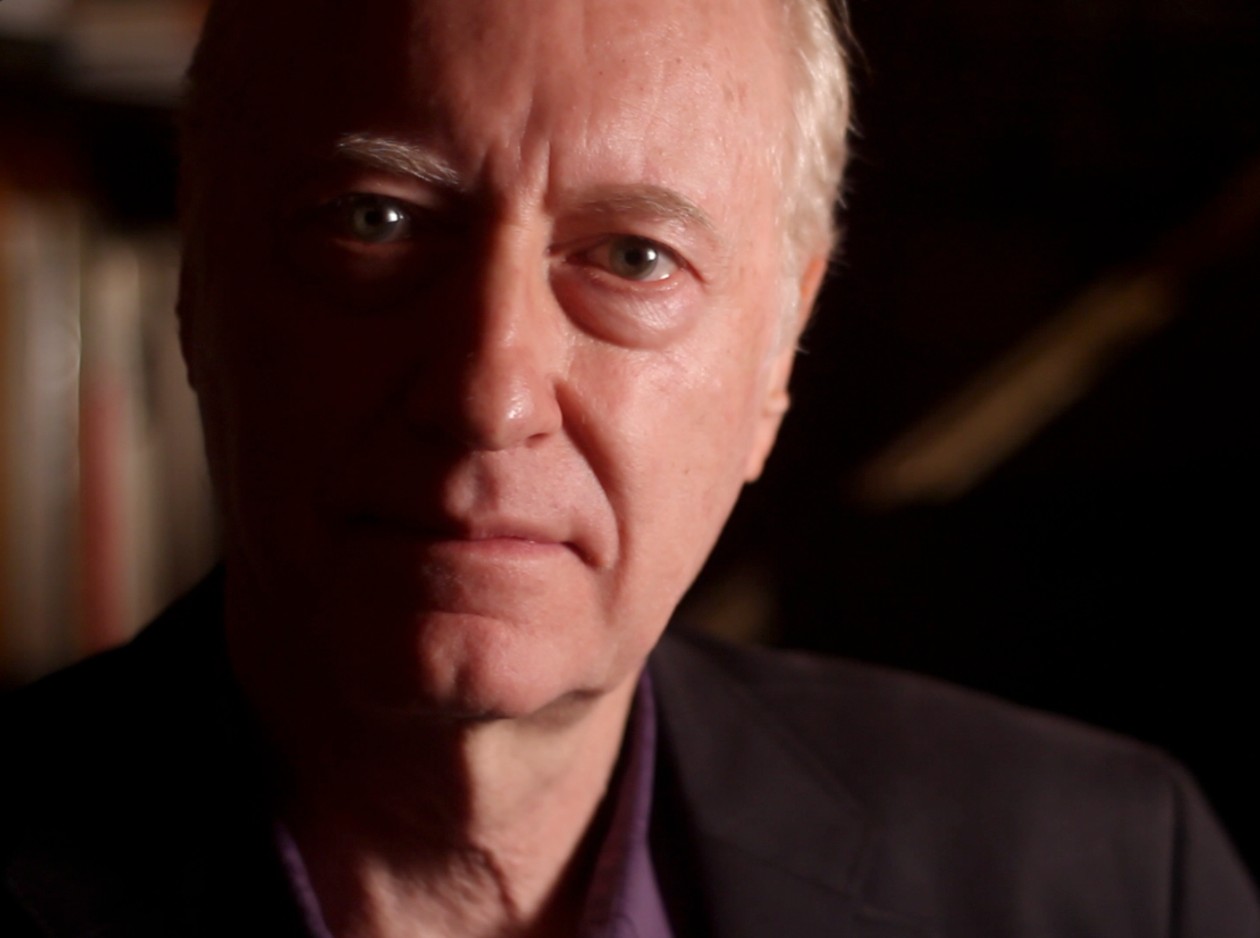We were lucky to catch up with Misha Segal recently and have shared our conversation below.
Misha, appreciate you joining us today. What do you think matters most in terms of achieving success?
I believe that two qualities stand out as the primary ingredients for success in any endeavor. The first is discovering your true passion—a force that ignites your spirit and fills each day with unwavering enthusiasm. It’s about uncovering a lifelong purpose that not only fulfills you but also adds value to the lives of others. For me, music has been a passion since I first became aware of my existence. Despite starting my formal music education at the relatively late age of 21, circumstances aligned, and by the time I turned 25, I had penned my first hit song in my native Israel. At the same time, I received the assignment to compose the score for Samuel Beckett’s play “Waiting for Godot” for the Israeli National Theater (Habima.) This production with my music became the biggest hit at the time for a legit play. Subsequently, I established myself as a prominent songwriter, producer, performer, and overall celebrity. My repertoire expanded to include compositions for the Israeli Philharmonic and numerous theaters across Israel. I gained recognition as a jazz pianist, a sought-after songwriter, and a composer for film and television. My pursuit of musical excellence took me to Germany and England for studies and work, before eventually settling in the United States, where I graduated from Berklee College of Music in Boston. Later, in New York City, I collaborated with iconic artists such as Buddy Rich, Maynard Ferguson, and Luther Vandross, cementing my reputation in the record industry. Upon relocating to Los Angeles, I embarked on a prolific career as a film composer, contributing to over 170 projects. Along the way, I earned an Emmy Award and garnered nominations for my outstanding work which included projects like “Phantom of the Opera,” “The New Adventures of Pippi Longstocking,” and “Berry Gordy’s – The Last Dragon.” Additionally, my talents as a songwriter led me to sign with Motown Records, where I collaborated with legends like Smokey Robinson and The Four Tops. I also had the privilege of producing Randy Crawford for Warner Brothers and put out a few CDs which featured jazz luminaries Chick Corea and Freddy Hubbard, with endorsements from Quincy Jones and Bob James.
Life took a profound turn when my mother was diagnosed with lung cancer. For six years, I devoted myself almost entirely to supporting her in her battle against this formidable foe. Following her passing, I embarked on a nationwide tour, playing solo piano performances for patients and caregivers in major hospitals across the country. Through these performances, I aimed to uplift spirits and raise funds for organizations such as the Georgia Cancer Coalition and the Lung Cancer Alliance. Witnessing firsthand the transformative power of music to provide solace to those grappling with adversity reinforced my belief that music serves a purpose far beyond mere entertainment. I received countless letters and calls expressing gratitude for transporting listeners from their physical pain to the serene landscapes of their minds. This reaffirmed my conviction that the ultimate measure of an artist’s worth lies in their ability to positively impact people’s lives. Through that experience I realized that passion, coupled with a sense of purpose, forms the bedrock of genuine success. Success stems from nurturing one’s passion and aligning it with a meaningful purpose. It is through this synergy that we can truly make a profound difference in the world.
Up to this point, I’ve discussed the initial element crucial for success—namely, passion and purpose. The second vital ingredient, in my opinion, involves tenacity, combined with the capability to remain steadfast on a chosen path despite encountering misleading advice, differing opinions from others, or perceived obstacles. Allow me to share a personal anecdote that perfectly exemplifies this concept.
Teo Macero is widely regarded as one of the preeminent jazz producers of the 20th century. Among the prominent artists he has worked with are Duke Ellington, Dave Brubeck, Count Basie, Thelonious Monk, Stan Getz, and Miles Davis, among many others. Notably, Miles Davis’s “Bitches Brew” stands as the highest-selling jazz album of its time upon its release.
I graduated from Berklee college of music in Boston and moved to New York and said to myself, Either I get something going here very quickly, or I go back to Israel, where everybody knows me and where my work is highly appreciated. Equipped with all the knowledge from Berklee, I can make a great impact in Israel again, bigger than ever…
After graduating from Berklee in Boston, my wife Rama and I moved to New York and stayed with friends while we searched for an apartment. Four days passed, and on the morning of the fifth day, I said to my wife, “This is crazy! We’ve been in New York for four days, and nothing has happened.” My friends laughed and said, “Four days? You could spend four years here and still feel like nothing’s happening… This is New York City!”
Before leaving Boston, I produced a piece of music that featured alumni musicians, instructors and a couple of great up-and-coming young students. I grabbed that cassette and headed to 54th street.
CBS records, on 54th street and Avenue of the Americas, was my first stop. I was going to pay a visit to every major record label in New York City that day, my fifth day in Manhattan.
I walked into this huge, imposing building and shot up to the 33rd floor. Where I saw the photos of Miles Davis, Duke Ellington, Dave Brubeck, and Louis Armstrong… As I stepped out of the elevator, the door closed softly behind me with a gentle swoosh. With confidence, I approached the receptionist’s desk. “May I help you?” she inquired.
Freshly arrived from Israel via Berklee College of Music, I had no clue about Teo Macero’s whereabouts. Unsure if he was in the US, Japan, or with Columbia Records, or if he had switched to another label, I boldly requested, “I’d like to see Mr. Teo Macero, please.”
“Do you have an appointment?” the receptionist inquired.
“No, I don’t have an appointment, but it’s important. I just came from Boston, and I really need to see him. You see, I might have to return to Israel soon, and my time is limited…”
“I’m sorry, sir, but if you don’t have an appointment, you can’t see him,” she replied firmly.
“An appointment…” I pondered my options swiftly, feeling uncertain about the protocol. In Israel, I could simply walk into any office of any record label. “Okay,” I conceded, turning towards the elevator. As I gazed up at the wonderful pictures of the musicians I had long admired, I realized I needed to take action, even though I felt constrained by the situation.
Then, something straight out of a movie occured, reminiscent of a scene from “All the President’s Men” where Dustin Hoffman pulled a stunt to bypass a secretary.
As fate would have it, the receptionist had to step away from her desk, granting me a fleeting opportunity.
As soon as she disappeared, I darted past her station and into the interior corridor, where the offices were located. Moving swiftly, I searched from door to door until I found it – a small white-on-black label that read “TEO MACERO.” Teo Macero was just behind that door.
I took a deep breath, opened the door and stuck my head in. There he was, seated behind a desk, engrossed in reading a musical score. His pince-nez perched at the tip of his nose, his sharp, tiny, brown eyes met mine immediately, piercing yet whimsical.
“What the f… do you want?” Teo Macero’s voice was sharp and abrupt.
“My name is Misha Segal, and I just arrived from Boston. Actually, I’m from Israel…” I began, trying to remain composed despite his obvious irritation.
“What is this… Who the f… are you?” His frustration was palpable, his tone growing increasingly impatient.
“Well, I have a tape here that you need to listen to. I can’t stay long; I might have to return to Israel soon…” I explained hastily, hoping to convey the urgency of the situation.
“Get out!!!” he screamed.
“Mr. Macero, please, you don’t understand, I came all the way from Boston… I made this tape…” I implored.
This was going nowhere. He is yelling at me and I keep telling him some dumbass story about Boston and Israel.
At some point, I detected a subtle, mischievous smile creeping onto his face. It seemed as though he was taken aback and perhaps even a bit intrigued. Clearly, he had never encountered a situation quite like this before.
“I’m busy! Come back tomorrow. Now, get the f… outta here!!!” he barked abruptly, his tone still sharp and commanding.
He used the 4-letter word a lot, but never in a vicious way. It communicated precisely how he felt.
I hurried out of his office and dashed for the elevator, hoping to avoid the receptionist’s notice. Inside the elevator, I paced with excitement all the way down, my mind racing. Bursting through the door at home, I exclaimed, perhaps even screamed, “We’re staying in New York! WE MADE IT!”
“I have an appointment,” I declared proudly, tapping the tape I had brought with me.
“What do you mean you have an appointment? I make the appointments,” the receptionist retorted.
“I spoke to Mr. Macero, and he said to come back today,” I explained confidently.
“You spoke to… What time did he tell you to come?” she inquired skeptically.
“He just said to come today,” I replied.
“Please have a seat. I must warn you, though, I have no idea when he’ll be here,” she cautioned.
At approximately 1:00 pm, Teo burst out of the elevator like a bullet, carrying a case and appearing somewhat disheveled. I patiently waited until about 1:45 when he finally called me into his office.
Teo grabbed the tape and, without so much as a glance in my direction, swiftly and deftly placed it in his player. He rewound the tape, listening to the same piece repeatedly. After five repetitions, he finally looked directly at me and asked, “So, what do you want from me?”
I was dumbfounded. I wasn’t prepared for such a question and I had no specific answer.
“I don’t know Mr. Macero…”
“Call me, Teo,” he said.
“I don’t know, Teo, I mean, do you like the music?”
“Would you be still sitting here if I didn’t? This is good work, who the hell was the sax player?”
So, we chatted for a while, and I noticed him smile for real for the first time. Then, he said, “Okay, then, since you don’t know, how would you like me to manage you?”
The rest, as they say, is history. Through Teo, I began my career in New York City.
Tenacity, persistence on a given course. No matter how good you are, these attributes are crucial. It is a tough universe and the music industry can be very tough to navigate and in order to survive it, there are times when you need to be even tougher.
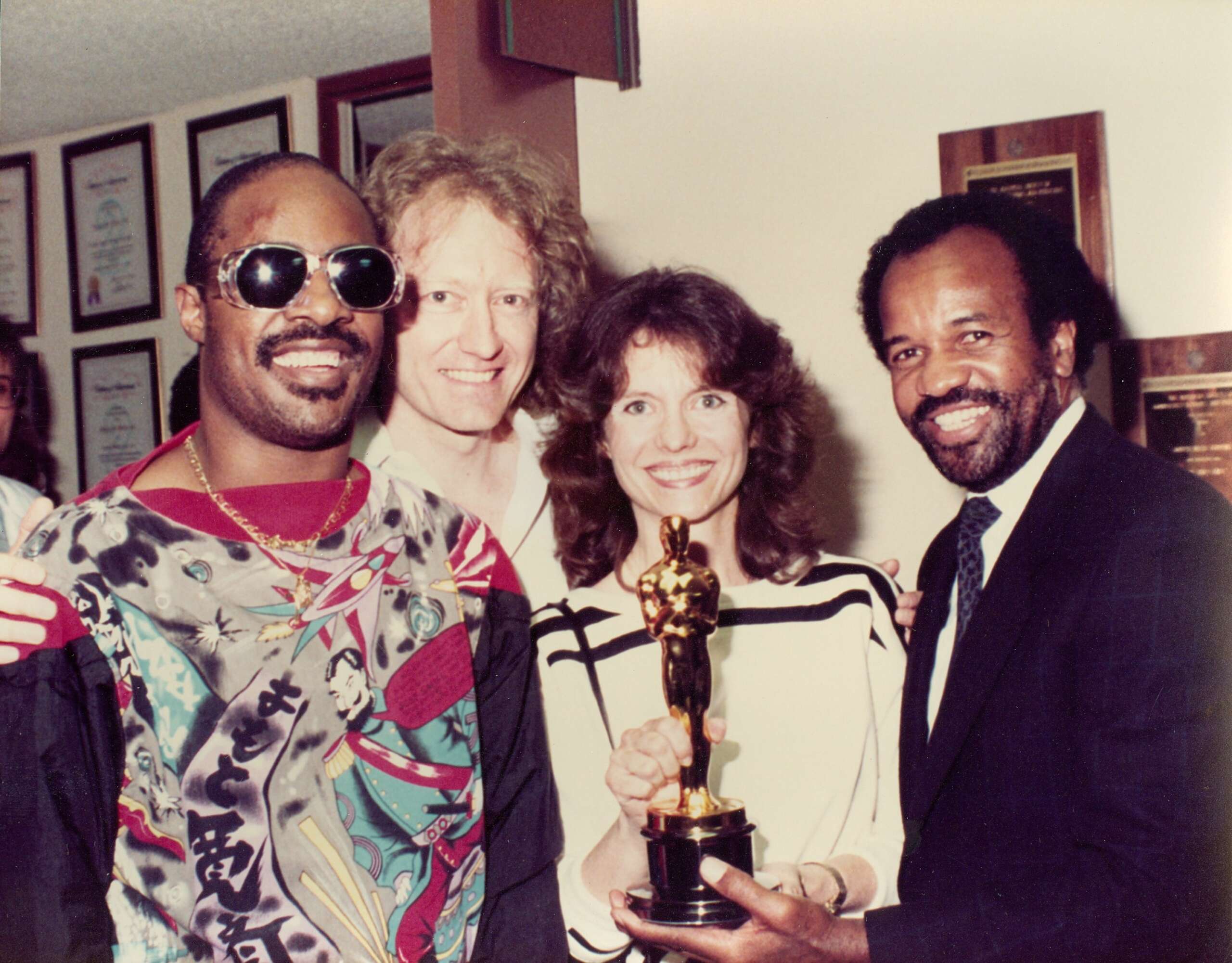
Misha, before we move on to more of these sorts of questions, can you take some time to bring our readers up to speed on you and what you do?
How you got into your industry / business / discipline / craft etc,
As a composer, songwriter, music producer, arranger, and artist, breaking into the music industry (or any entertainment field) is rarely a straightforward path. In music, decisions are often driven by emotional responses, whether to the work itself or to the individual behind it. Unlike professions like medicine or law, there’s no fixed methodology. Meeting the right person at the right time or place can make all the difference, even in today’s digital age where Zoom meetings are common.
My own career began in Israel under unusual circumstances. I was living in Eilat, a major city today but back then still developing and reminiscent of the wild west. Normal temperatures soared to 120 degrees Fahrenheit, and air conditioning was a luxury not everyone had.
I resided there for a while, securing a job playing piano at the only club in town. During that time, I shared a condo with a clarinet player. One day, out of the blue, he asked me, “Do you write songs?” Perplexed, I responded, “I don’t know, why do you ask?” He explained that his sister, who was just beginning her singing career, was in need of material.
In response to his request, I composed a song, jotting down the notes on paper. He promptly sent it to his sister. Two months later, we received a reply indicating that she adored the melody and intended to collaborate with a lyricist. As fate would have it, the singer was none other than Chava Alberstein, who went on to become the most prominent female singer in Israel’s history.
The lyricist turned out to be Ehud Manor, who would go on to become one of the most prolific lyricists ever. Ehud’s career extended far beyond just writing lyrics; he achieved widespread recognition, winning the Eurovision Best Song award and participating numerous times. Additionally, he hosted a popular radio show and TV program. Furthermore, Ehud translated many American musicals into Hebrew.
Remarkably, my first song ever became a hit, despite my initial uncertainty about my songwriting abilities. Meanwhile, I received a call from my teacher at the time, composer Noam Sheriff, asking me to compose the music for Waiting for Godot, a task he didn’t have time to undertake himself. The production turned out to be a massive success, and from that point on, my career skyrocketed.
What type of products/services/creative works you provide,
I write songs, compose music scores for movies and Television. I produce records and make my own projects as artist as well.
What problems do you solve for your clients and/or
I prioritize delivering the highest possible quality in all my work.
I consistently surpass contractual expectations, viewing each project as an investment in the future. I refrain from complaining, gossiping, or criticizing. There is no product in those. Instead, I focus on solving problems and contributing positively. Once I commit to a project, I remain dedicated until its completion, regardless of its scale or budget. Every project, whether large or small, receives my utmost care and attention. My signature serves as a mark of excellence on everything produced in my studio.
What do you think sets you apart from others.
It’s a combination of several factors that define my approach. Firstly, I consistently strive to innovate and create new things. I aim to explore different styles and viewpoints that haven’t been fully explored before, and more often than not, I succeed in doing so. I take full responsibility for my actions and never use the excuse of being an artist to justify tardiness or any other shortcomings.
Moreover, I make a conscious effort to genuinely engage with those I work with or collaborate with. Everyone has a unique perspective, and while some viewpoints may be more valid than others, I am sincerely interested in people, fellow artists, and the projects presented to me. This genuine interest fosters collaboration and ensures that each project is approached with enthusiasm and dedication.
What are you most proud of and what are the main things you want potential clients/followers/fans to know about you/your brand/your work/ etc. Please provide as much detail as you feel relevant as this is one of the core questions where the reader will get to know about you and your brand/organization/etc
I take pride in a couple of key aspects of my work. Firstly, I’m always eager to explore new ideas and innovative approaches that are not only creative but also practical and effective. Secondly, my professionalism is of utmost importance to me, and I consistently strive to deliver the highest level of quality in everything I do.
Furthermore, I have a strong sense of responsibility, never shying away from difficult challenges or passing them off to others before thoroughly exploring all possible solutions. People trust me to handle tasks within my area of expertise, and sometimes even rely on me to help solve team crises or other problems that may arise. This reliability and willingness to take on challenges contribute to my reputation as a dependable and valuable team member.
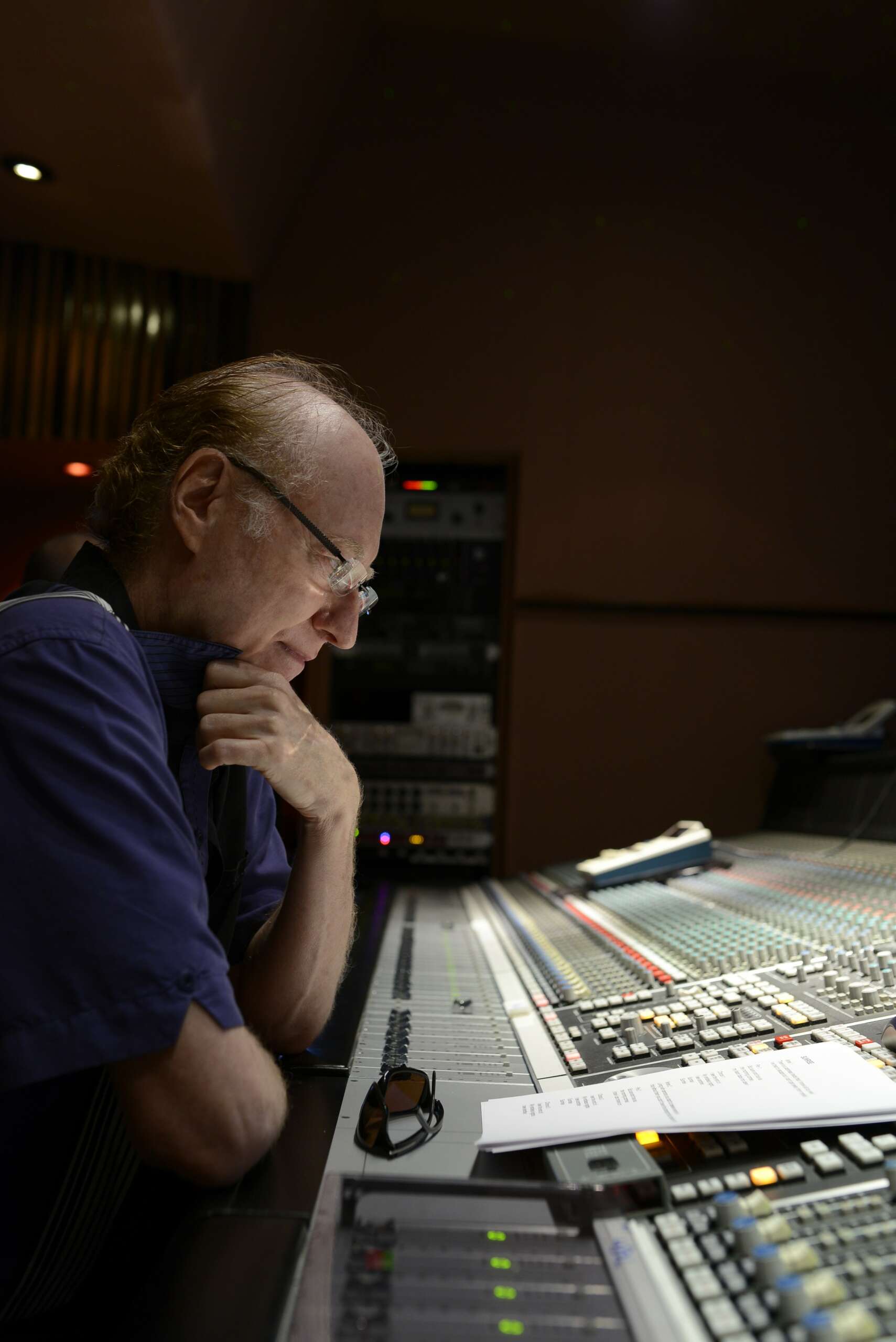
Have you ever had to pivot?
When I made the decision to relocate from Israel to the USA, I was at the pinnacle of my career there. I felt that I had achieved everything one could at that time and sensed a need to “spread my wings.” The decision was made relatively swift. While some major decisions require careful consideration, others come more intuitively. I always thought that when one knows, one knows. Logistically, it was a significant undertaking, requiring thorough preparation. I chose to take a couple of years off and study at the Berklee College of Music. This period served dual purposes: acquiring additional skills to excel at the highest level in the US, and familiarizing myself with the culture to operate seamlessly as if I were a born American. In today’s interconnected world, understanding other cultures, customs, and practices is not only advisable for international engagement but also promotes personal growth and enrichment. To me, greater understanding fosters a harmonious environment and reduces conflicts.
Bottom line, while making that move required courage, it was a logical decision that yielded enormous benefits in various aspects of my life.
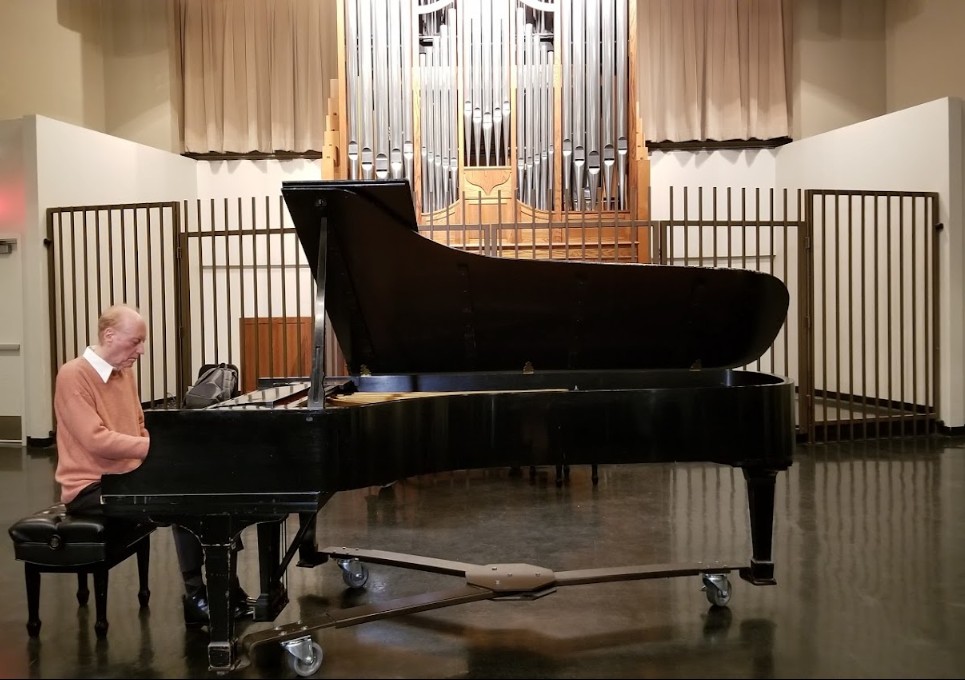
Is there mission driving your creative journey?
The decision to relocate from New York to Los Angeles felt even more significant than my move from Tel Aviv to New York. I instantly fell in love with New York upon my arrival; it felt like home to me. However, in the early 1980s, the record industry faced a severe downturn, resulting in widespread layoffs. To sustain my income, I transitioned into composing music for commercials. It was a very lucrative year but I felt like I was “dying” artistically. I literally asked myself. “Is this why you came to America, to sell supermarket products and promote airlines and laundry detergents?” I made the decision to pack my bags once again and relocate to Los Angeles. I reasoned that with my background as an educated composer, I could pursue opportunities in film scoring before returning to New York. In Los Angeles, my career flourished rapidly.
I quickly secured contracts to compose scores for television and feature films, and I even won an Emmy award. Additionally, I met Berry Gordy and signed a songwriting deal with Motown Records, produced other artists, and released my own albums.
Although I never returned to New York, I enjoyed a fulfilling and successful career in Hollywood. Being able to write original music in such a diverse range of styles was truly fantastic. It was an incredibly liberating experience.
Reflecting on my journey, I am reminded of Robert Frost’s poem, “The Road Not Taken.” I often wonder what my life would have been like if I had chosen to remain in New York. Nonetheless, I have few regrets about taking the path less traveled and forging my own unique career in Los Angeles.
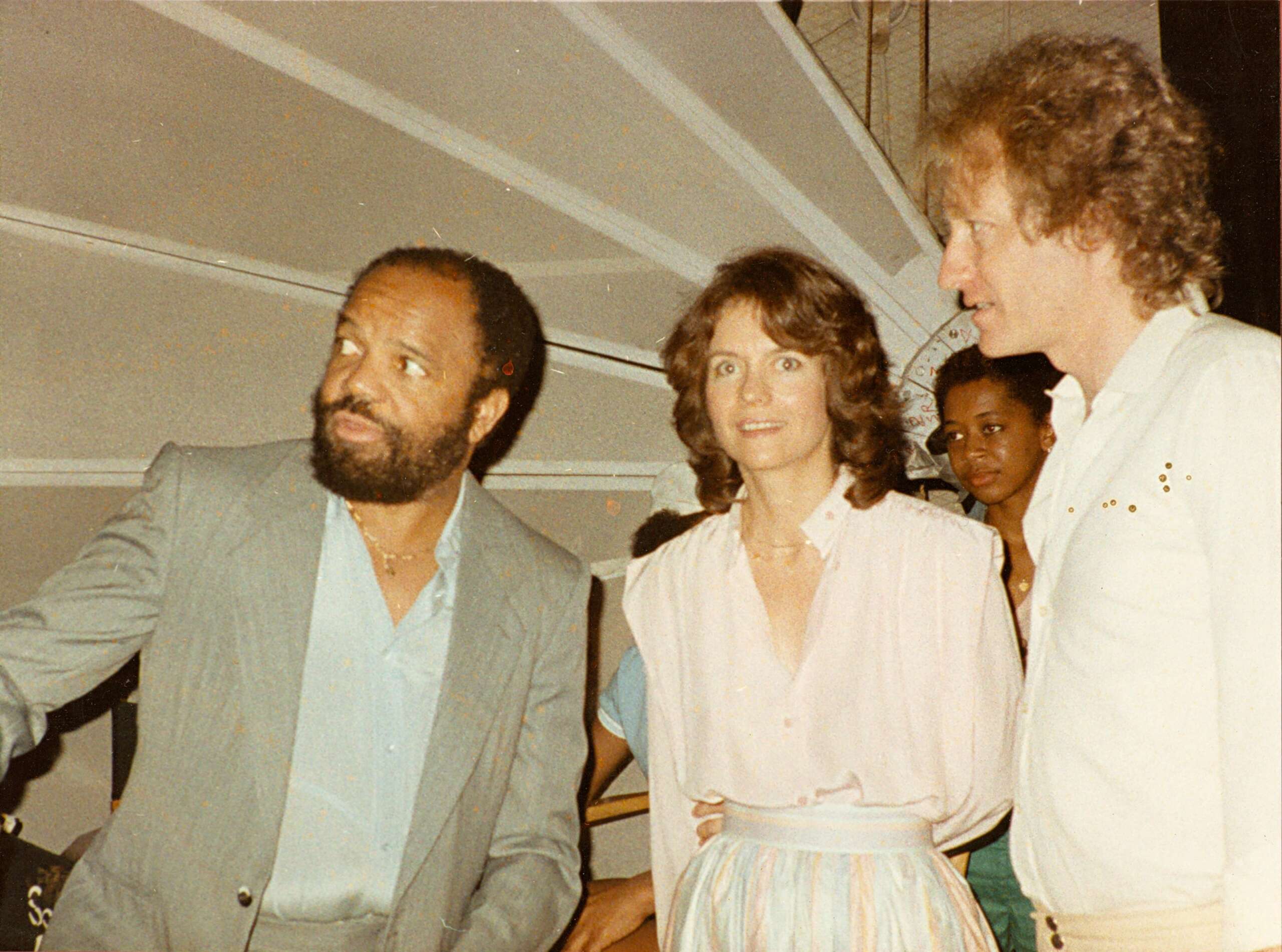
Contact Info:
- Website: www.mishasegal.com
- Facebook: www.facebook.com/misha.segal/
- Linkedin: https://www.linkedin.com/in/misha-segal-composer-songwriter-producer-34411829/
- Twitter: twitter.com/MishaSegalMusic
- Youtube: https://www.youtube.com/channel/UCAgtsC000w0KtcomkOMBs6Q
- Other: www.theforbiddenband.com https://femalecd.com/


